Baby Boomers have accomplished a lot but there is much more to do
Wayne W. Clark and Woodrow W. Clark II (#)
The Baby Boomer generation has been at the heart of the social movements that have changed society for African Americans, Latinos, Native Americans, Women, Gays, Transgender and other groups that deserved their American Constitutional rights and social responsibilities. Growing up, many of our first Baby Boomer experiences as young adults were with the concerns about social justice for African Americans in our neighborhoods, communities, cities and in all States. Historically, there had been a Civil War to free the slaves, but there was still much more to do to promote social justice and social equality.
As the hundredth anniversary or the Civil War came into view, there were significant social injustice still occurring, there was “redlining” in communities to prevent home ownership, work place employment discrimination such as not providing unemployment benefits to agricultural and domestic employees, income inequality for workers doing the same job, and laws that blatantly discriminated against people of color on buses, seating in restaurants, in our schools; the list is extensive. Our generation were advocates and followers of Martin Luther King, Malcom X, Stokely Carmichael, and Ralph Abernathy in the fight against racism. Civil Rights was needed for people of color whether it be in housing, jobs, salaries, promotions, and education at all levels.
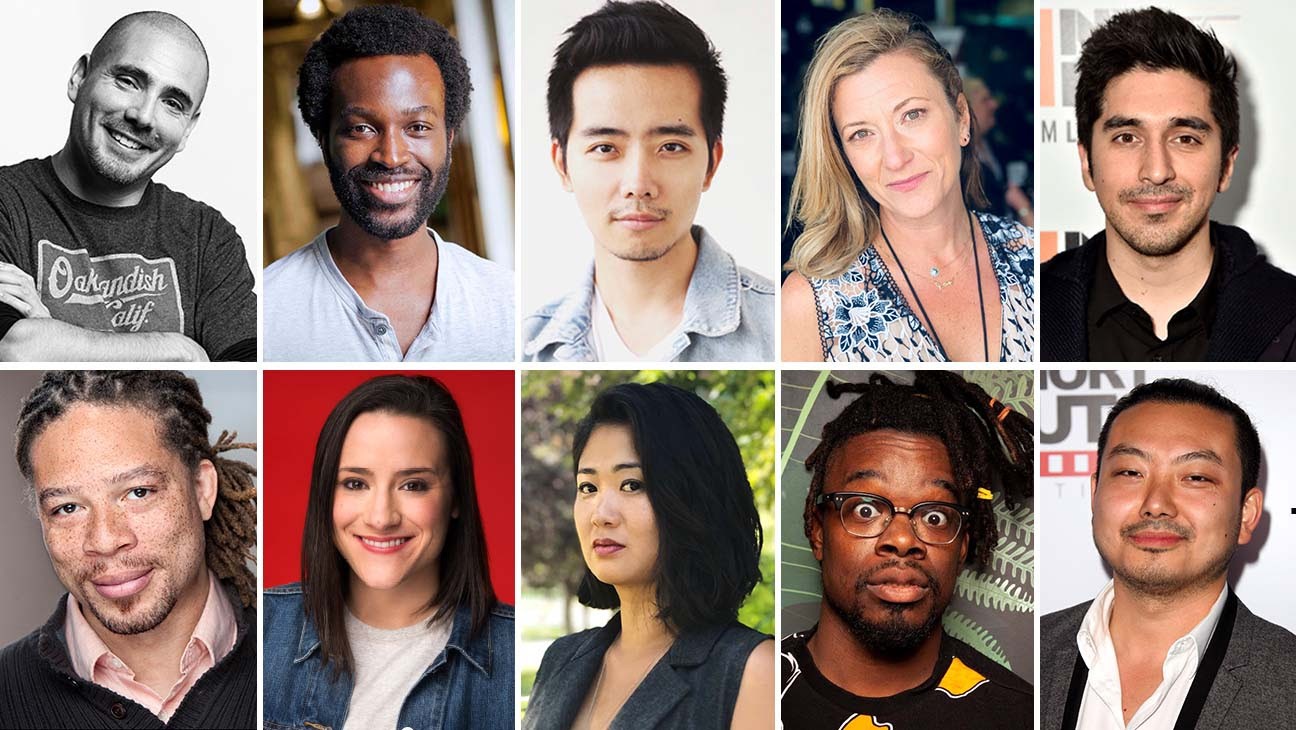
Source: Hollywood Reporter June 2020
Were there victories? YES. Are we finished? Absolutely NOT. Is society rid of discrimination based on the color of one’s skin? Not yet. The current strife in our country speaks loudly about how much more needs to be done. Yet we also must state and communicate how much has been accomplished. And document with proof and evidence on how much has changed. We do not want to let the Next Generation (NexGen) have to repair what is wrong, We want to leave the NexGen with solid social justice reforms in all areas and all levels so they can build into everyone’s future. In the entertainment business as seen above, people of all races, gender, and ages from young to old are working together.
But racism is not the only social justice issue that Baby Boomers have been be involved in changing. The women’s Rights Moment has progressed for women of all colors, races, and locations around the world. Much of this started before WWII and much has changed in the fifties, sixties, seventies, eighties and continues today. Over the past fifty years, there is long list of examples of women in leadership roles throughout US society; from the first Speaker of the House of Representatives, the first Justice of the Supreme Court, the first Senators, the first female movie producers, directors, corporate executives, and more. Even some of the world’s richest people are women.
Yet the change in social justice for women did not occur over night, back in the early 1980s Woody produced documentaries on current and emerging problems in the USA and globally. For instance, he produced a highly acclaimed documentary on “Violence in Schools” based on his PhD thesis at University of California, Berkeley. Then he produced other documentaries.
Baby Boomers and social justice Baby Boomers have accomplished a lot but there is much more to do Wayne W. Clark and Woodrow W. Clark II (#) The Baby Boomer generation has been at the heart of the social movements that have changed society for African Americans, Latinos, Native Americans, Women, Gays, Transgender and other groups that deserved their American Constitutional rights and social responsibilities. Growing up, many of our first Baby Boomer experiences as young adults were with the concerns about social justice for African Americans in our neighborhoods, communities, cities and in all States. Historically, there had been a Civil War to free the slaves, but there was still much more to do to promote social justice and social equality. As the hundredth anniversary or the Civil War came into view, there were significant social injustice still occurring, there was “redlining” in communities to prevent home ownership, work place employment discrimination such as not providing unemployment benefits to agricultural and domestic employees, income inequality for workers doing the same job, and laws that blatantly discriminated against people of color on buses, seating in restaurants, in our schools; the list is extensive. Our generation were advocates and followers of Martin Luther King, Malcom X, Stokely Carmichael, and Ralph Abernathy in the fight against racism. Civil Rights was needed for people of color whether it be in housing, jobs, salaries, promotions, and education at all levels.  Source: Hollywood Reporter June 2020 Were there victories? YES. Are we finished? Absolutely NOT. Is society rid of discrimination based on the color of one’s skin? Not yet. The current strife in our country speaks loudly about how much more needs to be done. Yet we also must state and communicate how much has been accomplished. And document with proof and evidence on how much has changed. We do not want to let the Next Generation (NexGen) have to repair what is wrong, We want to leave the NexGen with solid social justice reforms in all areas and all levels so they can build into everyone’s future. In the entertainment business as seen above, people of all races, gender, and ages from young to old are working together. But racism is not the only social justice issue that Baby Boomers have been be involved in changing. The women’s Rights Moment has progressed for women of all colors, races, and locations around the world. Much of this started before WWII and much has changed in the fifties, sixties, seventies, eighties and continues today. Over the past fifty years, there is long list of examples of women in leadership roles throughout US society; from the first Speaker of the House of Representatives, the first Justice of the Supreme Court, the first Senators, the first female movie producers, directors, corporate executives, and more. Even some of the world’s richest people are women. Yet the change in social justice for women did not occur over night, back in the early 1980s Woody produced documentaries on current and emerging problems in the USA and globally. For instance, he produced a highly acclaimed documentary on “Violence in Schools” based on his PhD thesis at University of California, Berkeley. Then he produced other documentaries.   Woody is on the left as he appeared in the 1982 documentary sexual harassment titled “The Workplace Hustle” (Source: The New Haven Register, Tuesday June 18, 1982), and on the right side as he looks today. This documentary about sexual harassment in the workplace, won awards and got international attention due to the topic about issues confronting women in the workplace. The documentary was translated into five languages of which the most significant was Japanese as they had their companies coming to the USA (especially California) buying property and businesses. Some Japanese company owners would hire American women to work for them — and go to conferences where there was booked only one room and one bed. Yes. The women were expected to sleep etc. with their manager or lose their job. Woody went to Japan giving translated lectures about the documentary on sexual harassment so that men and women could learn how to stop harassment in the workplace. “The Workplace Hustle” documentary demonstrated the need for people of all races to be educated. The documentary showed a group of women talking about examples of harassment, while another group of men did not “know” what harassment was. The documentary was used by public and private organizations to educate employees, managers, and executives about the issue’s women faced in the workplace. Once men learned about sexual harassment, the documentary showed women and men talking about sexual harassment and what to do about it. Today women have broken through many” glass ceilings” for getting jobs, promotions and family needs met, yet there is still much to do with issues such as: income inequality; government and corporate leaders that make vulgar comments about women and all kinds of discrimination based on gender. The entertainment industry has been one of the most visible as women (and even men) would not speak up about being harassed in order to get or keep their jobs. Still today, there are countries around the world that continue to practice male dominated rights and responsibilities. Baby boomer women can be proud of their accomplishments, they have set the table for the next generation to open more doors; crash thru additional glass ceilings; see the respect and appreciation they deserve; not just for them but their families and children. Another group that has benefited from the long overdue social justice activities of baby boomers are the gay, lesbian, bisexual and transgender (LGBTQ). These community members once had to conceal who they were, be “closeted”, hide their long-standing loving relationships, and were discriminated against in every stereotypical way. What a difference a few decades have made for the LGBTQ communities, the stigma of homosexuality is virtually eliminated. We see openly gay community members as government officials, corporate leaders, family members, neighbors, etc. now woven into the fabric of modern society. Woody’s 12 year son goes to a middle school and then to a high school who both have openly gay Principle and Superintendent respectively. Wayne worked with the LGBTQ community in San Francisco before and during the AIDS epidemic, he lost many friends and colleagues. It is gratifying to see all that has been accomplished. Here too there is more to do, for instance assuring that transgenders can be accepted, understood, have equal medical benefits, and fit into the community. Today we accept, live, work, respect, and seek out our uncles, aunts, cousins, neighbors, and fellow workers whatever their sexual preference. Yet again there is much more to be done to stop hate crimes; stop discrimination as it is still presenting itself; eliminate stigma still while embracing those with differences. The entertainment industry has blossomed in the inclusion of members of the LGBTQ from all races as workers and colleagues in all aspects of entertainment from writers, actors, producers, directors to set designers, seen below in the Hollywood Reporter (June3, 2020) as examples of the diversity in the entertainment business.  On the cover: In its inaugural Pride Issue, The Hollywood Reporter honors the most powerful LGBTQ people in the industry who are making global culture more inclusive: “I’ll feel good about representation when ‘gay actor,’ ‘gay director,’ ‘gay writer,’ ‘gay story’ are no longer labels even worth mentioning.” How do Baby Boomers put into perspective all the accomplishments made and the long road ahead? We can remember when many of us Baby Boomers were on the streets protesting over compelling social justice issues just like what is going on now around the USA and world such as in Washington, DC below a week ago.  Back in the 1960s into the 1970s, we marched with black people supporting their rights and values. The cause back then was the social injustice and the killing of black people. In many cases all too similar to the police action most recently in Minneapolis and other parts of the country. None of us and the world will forget this most recent murder. Protesters are of all different races but primarily the NexGen are leading the way now into tomorrow as Black People Matter. Definition of systemic racism is being clarified and articulated by leaders in government, sports, corporations, education This not what the NEW NORMAL is. In fact, we are going back 4-5 decades to re-enact the NEW NORMAL again. And that is our challenge. We need to define and enact the NEW NORMAL based on the distant past which we all know, but our children and grand-children do not know. Our NEXT NORMAL job is to teach and support everyone.  Protestors in two police cars in Brooklyn, New York City We have mentioned many times that our current society today is going to be different than the future. That we want, whether it is a sustainable climate, one with more emphasis on social issues being handled with compassion rather than force, or a society that regenerates its resources rather than discarding them. We thought the following quote from the CEO of one such organization trying to get us to a New Normal might be helpful. “At Smart Growth America, we acknowledge that many people—especially black Americans—are hurting right now. …The most urgent task for all of us is immediate justice for the families and communities of the recently slain and protection of the right to peaceful protest. Our other important work does continue, however, and this recognition of exemplary local efforts to build better, more equitable communities is rooted in our fundamental commitment to ensuring that everyone can safely live in a neighborhood that is healthy, prosperous, and resilient. From Calvin Gladney, President & CEO of Smart Growth America  We are looking forward to writing and sending everyone more news from our fellow Baby Boomers and what is the NEW NORMAL. (#) Wayne W. Clark PhD and Woodrow W. Clark II, MA3 PhD Sources for most pictures: Hollywood Reporter: Today in Entertainment (June 3, 2020) and on Sexual Harassment, Clark Communications-Strategic Partners (Beverly Hills, CA.) | |
Woody is on the left as he appeared in the 1982 documentary sexual harassment titled “The Workplace Hustle” (Source: The New Haven Register, Tuesday June 18, 1982), and on the right side as he looks today. This documentary about sexual harassment in the workplace, won awards and got international attention due to the topic about issues confronting women in the workplace. The documentary was translated into five languages of which the most significant was Japanese as they had their companies coming to the USA (especially California) buying property and businesses.
Some Japanese company owners would hire American women to work for them — and go to conferences where there was booked only one room and one bed. Yes. The women were expected to sleep etc. with their manager or lose their job. Woody went to Japan giving translated lectures about the documentary on sexual harassment so that men and women could learn how to stop harassment in the workplace. “The Workplace Hustle” documentary demonstrated the need for people of all races to be educated. The documentary showed a group of women talking about examples of harassment, while another group of men did not “know” what harassment was. The documentary was used by public and private organizations to educate employees, managers, and executives about the issue’s women faced in the workplace. Once men learned about sexual harassment, the documentary showed women and men talking about sexual harassment and what to do about it.
Today women have broken through many” glass ceilings” for getting jobs, promotions and family needs met, yet there is still much to do with issues such as: income inequality; government and corporate leaders that make vulgar comments about women and all kinds of discrimination based on gender. The entertainment industry has been one of the most visible as women (and even men) would not speak up about being harassed in order to get or keep their jobs.
Still today, there are countries around the world that continue to practice male dominated rights and responsibilities. Baby boomer women can be proud of their accomplishments, they have set the table for the next generation to open more doors; crash thru additional glass ceilings; see the respect and appreciation they deserve; not just for them but their families and children.
Another group that has benefited from the long overdue social justice activities of baby boomers are the gay, lesbian, bisexual and transgender (LGBTQ). These community members once had to conceal who they were, be “closeted”, hide their long-standing loving relationships, and were discriminated against in every stereotypical way. What a difference a few decades have made for the LGBTQ communities, the stigma of homosexuality is virtually eliminated.
We see openly gay community members as government officials, corporate leaders, family members, neighbors, etc. now woven into the fabric of modern society. Woody’s 12 year son goes to a middle school and then to a high school who both have openly gay Principle and Superintendent respectively. Wayne worked with the LGBTQ community in San Francisco before and during the AIDS epidemic, he lost many friends and colleagues. It is gratifying to see all that has been accomplished. Here too there is more to do, for instance assuring that transgenders can be accepted, understood, have equal medical benefits, and fit into the community.
Today we accept, live, work, respect, and seek out our uncles, aunts, cousins, neighbors, and fellow workers whatever their sexual preference. Yet again there is much more to be done to stop hate crimes; stop discrimination as it is still presenting itself; eliminate stigma still while embracing those with differences. The entertainment industry has blossomed in the inclusion of members of the LGBTQ from all races as workers and colleagues in all aspects of entertainment from writers, actors, producers, directors to set designers, seen below in the Hollywood Reporter (June3, 2020) as examples of the diversity in the entertainment business.
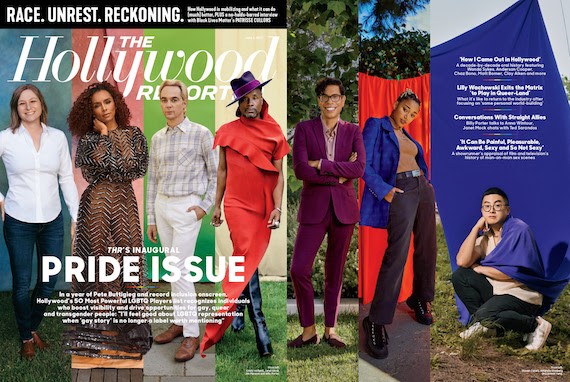
On the cover: In its inaugural Pride Issue, The Hollywood Reporter honors the most powerful LGBTQ people in the industry who are making global culture more inclusive: “I’ll feel good about representation when ‘gay actor,’ ‘gay director,’ ‘gay writer,’ ‘gay story’ are no longer labels even worth mentioning.”
How do Baby Boomers put into perspective all the accomplishments made and the long road ahead? We can remember when many of us Baby Boomers were on the streets protesting over compelling social justice issues just like what is going on now around the USA and world such as in Washington, DC below a week ago.
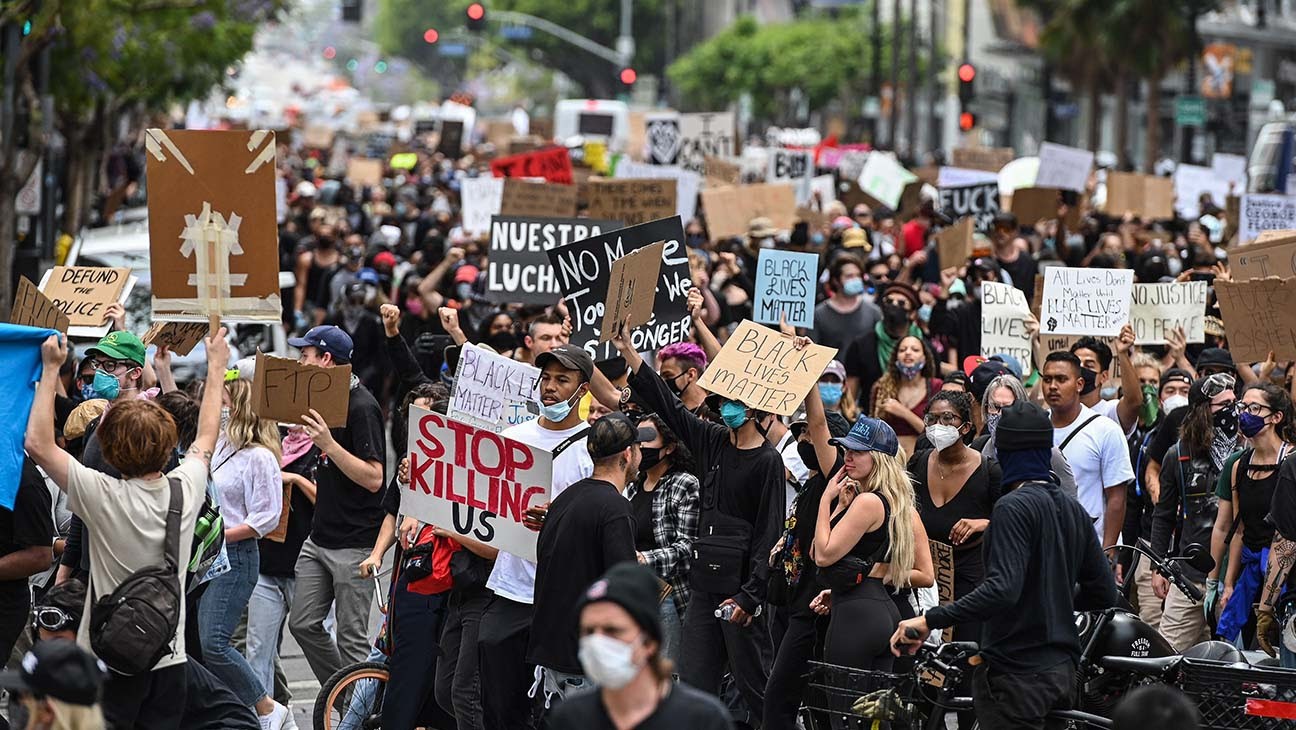
Back in the 1960s into the 1970s, we marched with black people supporting their rights and values. The cause back then was the social injustice and the killing of black people. In many cases all too similar to the police action most recently in Minneapolis and other parts of the country. None of us and the world will forget this most recent murder. Protesters are of all different races but primarily the NexGen are leading the way now into tomorrow as Black People Matter. Definition of systemic racism is being clarified and articulated by leaders in government, sports, corporations, education
This not what the NEW NORMAL is. In fact, we are going back 4-5 decades to re-enact the NEW NORMAL again. And that is our challenge. We need to define and enact the NEW NORMAL based on the distant past which we all know, but our children and grand-children do not know. Our NEXT NORMAL job is to teach and support everyone.
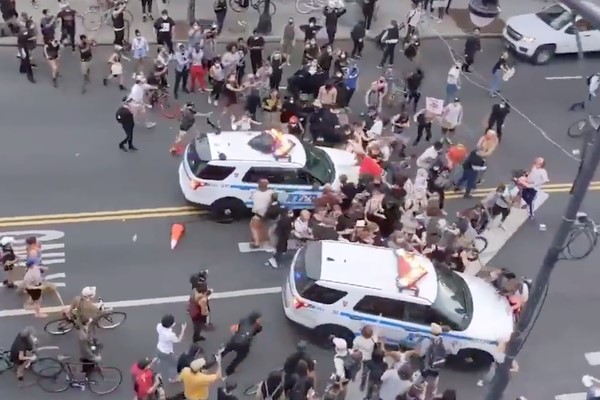
Protestors in two police cars in Brooklyn, New York City
We have mentioned many times that our current society today is going to be different than the future. That we want, whether it is a sustainable climate, one with more emphasis on social issues being handled with compassion rather than force, or a society that regenerates its resources rather than discarding them. We thought the following quote from the CEO of one such organization trying to get us to a New Normal might be helpful.
“At Smart Growth America, we acknowledge that many people—especially black Americans—are hurting right now. …The most urgent task for all of us is immediate justice for the families and communities of the recently slain and protection of the right to peaceful protest. Our other important work does continue, however, and this recognition of exemplary local efforts to build better, more equitable communities is rooted in our fundamental commitment to ensuring that everyone can safely live in a neighborhood that is healthy, prosperous, and resilient. From Calvin Gladney, President & CEO of Smart Growth America
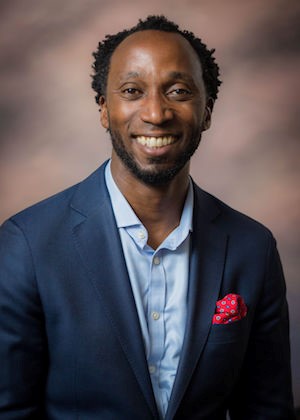
We are looking forward to writing and sending everyone more news from our fellow Baby Boomers and what is the NEW NORMAL.
(#) Wayne W. Clark PhD and Woodrow W. Clark II, MA3 PhD
Sources for most pictures: Hollywood Reporter: Today in Entertainment (June 3, 2020) and on Sexual Harassment, Clark Communications-Strategic Partners (Beverly Hills, CA.)

